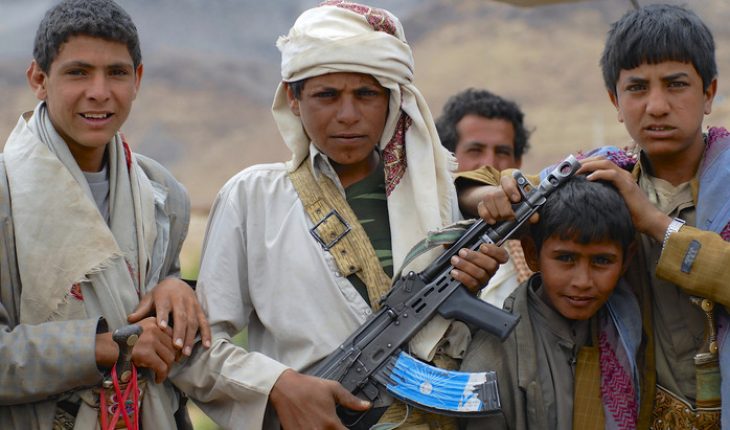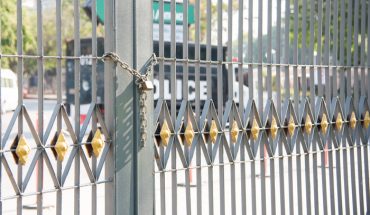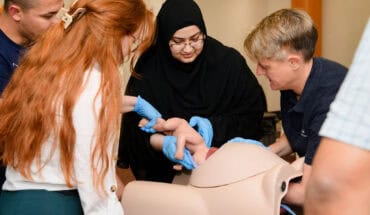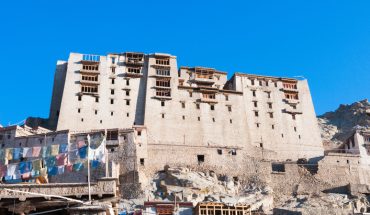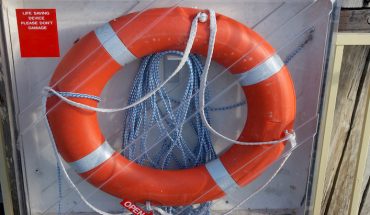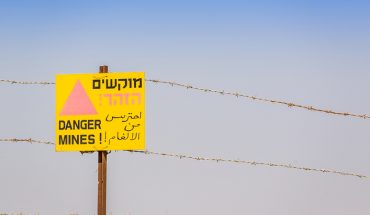I have just returned from my first mission with Medicins Sans Frontieres in the Yemen and I can definitely say it was a life-changing experience. I was working in the emergency department of a hospital in the north for three and a half months. The biggest difference between working in an A&E in an NHS hospital in Manchester and an A&E in Khamer in North Yemen was the number of gunshot wounds I had to deal with. In Manchester, it is rare to see someone with a bullet wound but in Khamer, I saw at least one or two people who had been shot every single day.
The sad fact was that most were accidental shootings nothing to to with the conflict. Khamer is an area behind the front lines and the majority of people we saw were people from Khamer and the surrounding areas and displaced refugees who were not fighting in combat. But still, the never ending streams of victims of guns came through our doors.
In Yemen, the culture has grown up that men carry Kalashnikovs, whatever they are doing and wherever they are. It is a sign of masculinity and power where these things are very important. Even at weddings, men discharge Kalashnikovs into the air as part of the celebration, but bullets ricochet and hit wedding guests or other close by victims. Sometimes children find their fathers weapons at home and unwittingly fire them at siblings, parents or themselves.
The wounds are serious and often life-threatening. Many of the victims bled to death before they even reached us. Weapons are fired in anger too, but these arguments can be over family feuds, or trivial matters when people feel their pride is at stake.
Something else that was new to me and not something I have never had to do at home was to treat children for malnutrition and manage any acute complications they were suffering from malnutrition. In Yemen, it was not uncommon to meet women with 8 children or more. Due to the war poverty was becoming more and more of an issue and families often struggled to provide enough food, particularly in the displaced population. In cases where women were not producing enough breast milk, they would be unable to afford formula. I saw children up to 5 months old who weighed less than an average newborn baby.
Other differences included the crowded wards in the Khamer Hospital where beds are close together and female family members are constantly on hand. In the UK, nurses do these jobs but in Yemen women relatives are expected to wash and feed their own relations.
MSF has a fantastic logistics team so the hospital did have electricity 24 hours a day, due to electrical generators, and clean drinking water was brought in by road. But people living in the surrounding areas did not have these luxuries and many children were brought in suffering from diarrhoea caused by dirty water and poor sanitation. Luckily, we had a well-stocked pharmacy and all the essential drugs we needed to treat and save the lives of our patients were always at hand. We could even order drugs or any additional equipment we required and we would receive them relatively quickly.
Now I am back home. I enjoyed my experience in Yemen and I am grateful to have had the opportunity to contribute to save lives in Khamer and work with many great people from Yemen and around the world. It is also great to be home and to understand that I’m privileged to live in a country at peace which is stable and safe. So many people around the world do not have that luxury.
- A Kalashnikov crisis in Yemen - 25th May 2016
